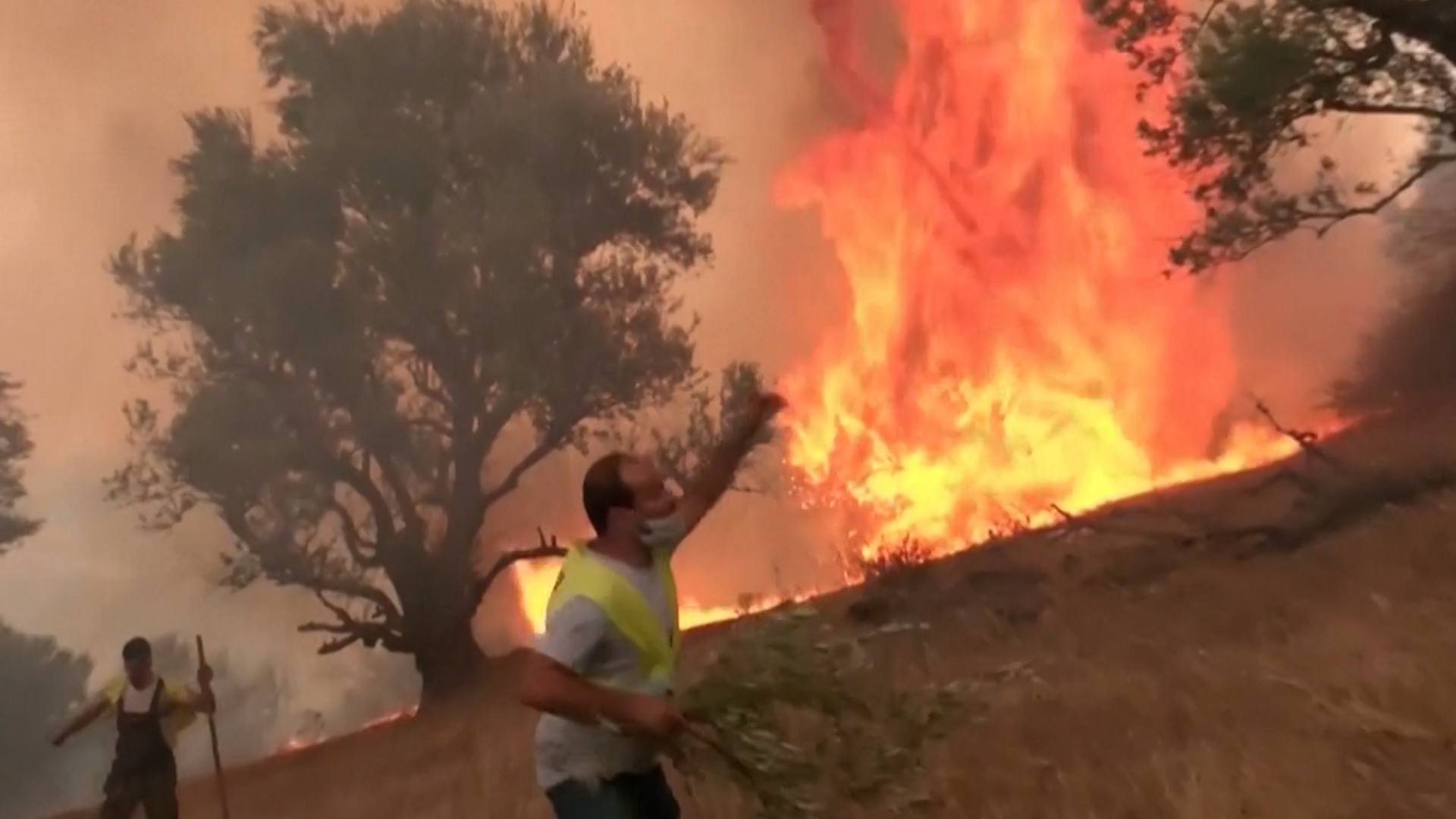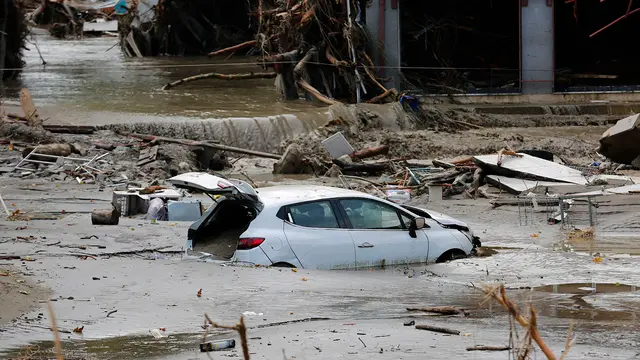
At least 21 people have died in floods caused by torrential rain in China's Hubei Province. Another four people are missing and thousands were forced to flee as heavy rain triggered landslides. Flash floods in Northern Turkey have left at least 27 dead. Authorities have yet to calculate the exact number of missing, but broadcaster NTV put the number at more than 100. Among those unaccounted for include five young children and eight members of the same extended family.
In Antartica a giant iceberg, the size of Greater London, has bumped against a similarly-sized block of ice, that is still partially connected to the ice shelf, but is believed to be about to break free. Scientists were concerned that the contact would trigger a complete rupture, but that hasn't happened.Britain's Halley research station has been temporarily evacuated over uncertainty about the stability of the ice sheet in the region.
Gigantic fires are burning on a record scale across Siberia. Russian authorities have declared a state of emergency in the northeast. The fires are larger than all other fires elsewhere in the world combined. While fires in the region are common, scientists say the massive scale of these fires are partly fueled by extreme heat and drought linked to climate change.In the U.S. state of California, the Dixie Fire, has now destroyed more than 1,100 buildings and is currently burning on an area more than half a million acres. Meantime, while the Northeast and Pacific Northwest parts of the country continue to swelter in extremely high temperatures, forecasters say that cooler weather is on its way.
Staying in the U.S., a tropical storm warning has been issued for the Florida Keys and the state's southwestern coast. The storm system formerly known as Tropical Storm Fred is expected to regain strength and come ashore as a tropical storm on Saturday morning. The system is currently off the coast of Cuba, where authorities have issued a tropical storm watch for central, northern and western regions.
Scientists say that extreme weather has become more prevalent because of climate change.
**Check out **
The China Report
**, our new weekly newsletter. **Subscribe here
!
 简体中文
简体中文






